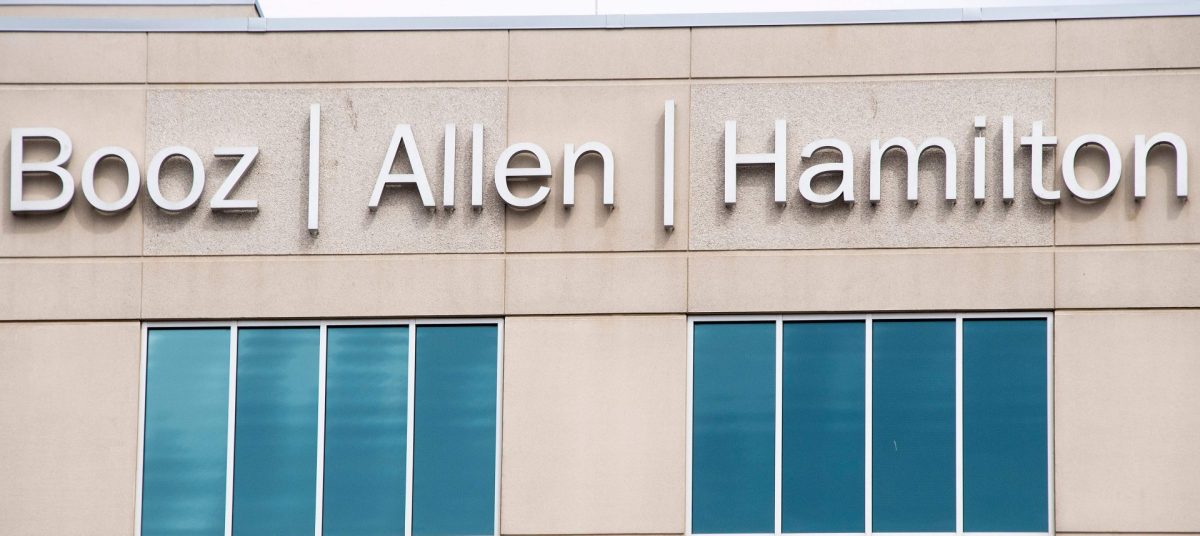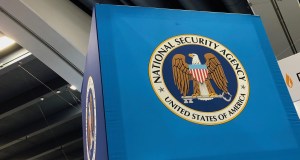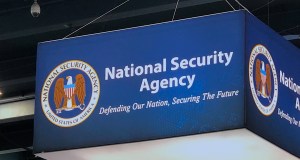DOJ urges judge to delay Booz Allen acquisition of EverWatch until NSA awards Optimal Decision contract

BALTIMORE — The Department of Justice urged a federal judge to delay Booz Allen Hamilton’s acquisition of signals intelligence company EverWatch to ensure meaningful competition for a $17 million NSA procurement, in U.S. District Court on Tuesday.
Speaking in court in Maryland, Jay Owen, an attorney with DOJ’s Antitrust Division argued: “Their merger agreement removes the incentive to compete, which is likely to lead to anticompetitive effects such as increased price or reduced quality … [w]hich Booz Allen can then effectuate, even though this is a contract for government services.”
The DOJ’s argument centered on the award of a $17 million intelligence modeling and simulation contract known as Optimal Decision, details of which were first revealed in court documents filed as part of the antitrust case.
Responding to the DOJ’s arguments, EverWatch attorney Al Pfeiffer in a closing statement told the court the idea that NSA will take only 90 days after receiving bids to award the Optimal Decision contract is “beyond an illusion.” Optimal Decision’s predecessor contract Mason III took 18 months from request for proposals to award.
The acquisition agreement between Booz Allen and EverWatch runs just shy of the Oct. 31 deadline for bids, and an order further delaying the merger would “destroy” the deal, Pfeiffer added.
“We are already losing employees because of the delay in the process,” Pfeiffer said. “We’re losing them even to the private sector because there are higher-paying private sector competitors for this very kind of modeling and simulation expertise.”
Speaking also in court on Tuesday, Booz Allen’s attorney Ryan Shores said DOJ has agreed to remedies like the ones the company proposed within the defense industry in the past, and both companies promising to stand by their bids should be “sufficient.”
DOJ attorney Owen added that one of the companies could pull the less-profitable bid post-merger and also pointed to past behavior where Booz Allen raised its labor rates on the Mason III contract, which it won in 2014, when it was extended in 2019 rather than competed.
“No two prime contractors will strike the exact same balance or will submit the exact same bid,” Owen said. “And government customers including the NSA benefit from this competition and the attempt to bring best value and best solution forward in government contracting.
Shores countered the labor market had changed in 2019, and Booz was at risk of losing tech employees if it didn’t pay them more.
Prior to the Tuesday hearing, the Department of Justice filed a revised order filed shortly before the Tuesday hearing that anticipates the NSA awarding its Optimal Decision contract on Jan. 27, 2023, 90 days after bids are due on Oct. 31, and would require both companies to remain separate until then.
Previously, the DOJ had proposed an order abrogating Booz Allen’s million merger with EverWatch, but Booz Allen subsequently offered a remedy in which the companies would commit to remaining structurally independent for up to a year after the deal is finalized.
In response to a question from Judge Catherine Blake, Owen said DOJ didn’t oppose accepting Booz Allen’s remedy, if she denied the department’s injunction, and that NSA hadn’t taken a position on the case. Blake also asked what the practical effect of DOJ’s desired order would be if Booz Allen appealed, to which Owen said it would “extend uncertainty.”
Court documents show that Booz Allen values EverWatch at around $440 million.





